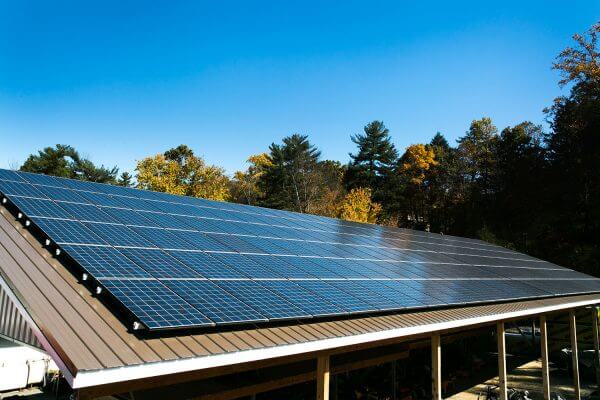There are two main risks when it comes to going solar in Florida. The first risk is that you might not reduce your electric bill if you don’t understand how net metering works in Florida. The second risk is that you might get an unexpectedly high electric bill if your solar system stops working and you don’t know about it. Both risks are easily manageable. Plus, Florida is one of the nation’s sunniest states, which makes it a great place to go solar.

The risk of not understanding net metering in Florida
Net metering is the practice of paying per kilowatt-hour for electricity generated by your solar system that is supplied to the grid. The risk of not understanding how net metering works in Florida is that you might be expecting to zero-out your utility bill because you think you generated enough power to cover all your usage.
Your solar system’s production varies by season
Your utility company will compensate you for the electricity you supply to them at the retail rate that you pay. However, the amount of power your system generates depends on how much sunlight it gets. From the beginning of fall to the beginning of spring, your system may generate only 35% of its annual electrical production. From the beginning of spring to the beginning of fall, your system may generate up to 65% of its annual production.
How that seasonal production affects your utility bill
If you have your system installed in fall or winter, the system may not produce enough electricity to cover your needs. That means you’d still have to pay your utility for power until the days get longer and your system catches up to your energy needs.
If you install during the summer, you may get some overproduction, but not enough to offset your fall and winter usage. In this scenario, you should expect to owe your utility company for some of the power you consume in the fall and winter months after you’ve used up the bill credits you accumulated in the summer.
You are compensated annually for any excess bill credits
12 months after your system was installed, it’s time for your “true-up” bill. If you have leftover excess credits you’ll receive payment for them on your true-up bill. If you’ve used up all your bill credits, you won’t receive any payment.
What happens if your system stops producing electricity
If your solar system stops producing electricity or under-produces, you may not know about it until you get your next electric bill, which will be higher than you expected. If it happens during the months where your system would be overproducing, that could negatively affect your net metering bill credits. Most solar companies will fix your system under warranty, but the Brightera 25-year production guarantee does a lot more.
The 25-year production guarantee
We guarantee that your solar power system will meet its promised production amount for 25 years.
We guarantee that the solar system will produce the electricity promised with our 25-Year Production Guarantee. We will even pay you for any shortfall from our fault. However, your actual savings will depend on your usage and electricity rates in your area. You should carefully consider if the usage and rates shown in your proposal are appropriate. Keep in mind that many homeowners will use more electricity after going solar.
What we do if there is a problem. We monitor your system for 25 years. If we detect that its performance is falling short, we’ll contact you and send someone out to fix it. If the shortfall is caused by something that is our fault, we will compensate you for the shortfall. The amount of compensation you receive will be listed in your contract with us.
